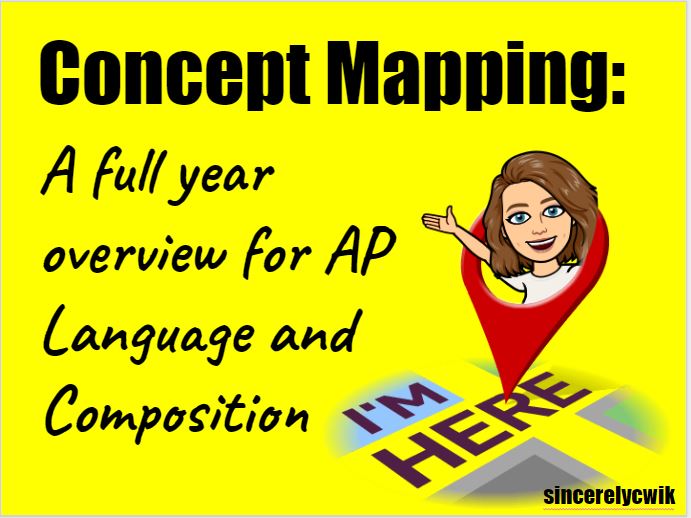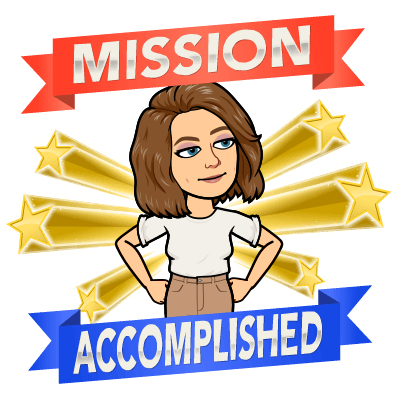|
I am no fool for free trials. I set myself a phone reminder to know when to cancel them. I utilize them exactly when needed. I manipulate the system like a Coupon Queens manipulates their local grocery store. But this one got me. Early this summer, I was contracted to design some curriculum for NMSI, the National Math and Science Initiative. One aspect of their design process is a concept map and the suggested tool was LucidChart, a web-based service for flowcharts, organizational structures, and collaboration. Unfortunately, I quickly learned that I had too many ideas (and bubbles) for the free version, so begrudgingly, I started the free trial, telling myself I’d cancel in a week. Well, I forgot. And therefore, I needed to get my money’s worth. Hence, my quest to concept map just about everything in my life that might need mapping, starting with the most obvious: my preps for this coming school year. Below is my concept map for AP Language and Composition (and further below, is a little explanation). Semester 1: Skill Overview The entire first semester is spent introducing students to the skills for their exam and then, practicing those skills. Unit 1 - Critical Reading This unit kills two birds: introduces students to AP Lang multiple choice and transitions students into rhetorical analysis. Students practice annotation, reading with purpose, and identifying author’s purpose and strategies. Unit 2 - Writing Survey The survey takes students through each of the Free Response Questions. Each subunit includes a pre-assessment, modeling, collaborative practice, and then assessment. Unit 3 - Writing Circles As a review of the writing survey, students will write and revise in small groups. At the end of the unit, they will choose one of their essays which they believe has the potential to be a “Perfect 9.” Then they will revise as many times as they can until the final exam. The final paper serves as their final exam score. Semester 2: Further Practice The second semester of the course is meant to spiral through the skills developed in the first semester. Unit 4 - Thematic Emulation Unit Based on student interest or need, the teacher will take students through a series of text emulations, studying the rhetoric and style of the mentor text before mimicking the same in a new product. Ultimately, students will all write essays demonstrating their own voice and style. Unit 5 - Argumentation Combining what students learned about synthesis and argumentative writing, students will engage in partner debates. Prior to these debates, students will create original synthesis prompts by researching a topic and providing diverse sources. Using this as a starting resource, students will then debate the resolution in pairs. Unit 6 - Workshop Again, the class will review the three styles of writing for the Free Response Question. Using essays from their mock exam, students will study their strengths and weaknesses to determine what they need to remember on test day. They will compile this self-assessment in a portfolio with a final essay, a revised version of their diagnostic essay from Week 1. Unit 7 - Introduction to Literary Analysis As a bridge between AP Language and AP Literature, the teacher will introduce students to literary analysis. Because of the time constraints, the unit will utilize read aloud and discussion to work through based literary analysis.
Consider: How can you use concept mapping to structure your preps this year? sincerely, cwik
12 Comments
5/24/2019 05:32:29 am
A new teacher can always be very intimidating. When I was a student, I would always do stuff that made my teachers go angry. I was not really a teacher's pet, in fact, I was their worst enemy. I lack all the basic behaviors that you would want on a student, which is why I always get in trouble back then. Ironically, I have decided to become a teacher myself. It is something that I question, but I love doing.
Reply
8/2/2022 04:04:19 am
Tiktok hızlı İzlenme satın al paketleri satın alma işleminizin ardından otomatik olarak hesabınıza geçer. Tiktok hesabınız için en güvenilir ve kaliteli izlenme paketlerini sağlıyoruz. Tiktok videolarınız için Türk izlenme paketleri satın alabilirsiniz.
Reply
8/20/2022 07:28:06 pm
Neden NestaCloud.com? Biz her zaman müşteri memnuniyeti odaklı çalışan bir ekip olduk. bu sebeple sorun yaşasanız dahi elimizden geleni yapıp çözüme erdiriyoruz. Memnuniyet sağlamak için kar oranımızı göz ardı ediyoruz. Sizinle çalışmayı NestaCloud ailesi olarak çok isteriz.
Reply
8/21/2022 12:07:31 pm
Mp3 Video indir en kolay şekilde çoğu platformdan mp3 veya video indirebileceğiniz en popüler sitedir. Sitemizde tek tıkla cihazınıza istediğiniz mp3 veya video dosyasını kaydedebilirsiniz. Mp3 Video İndir Türkiye'nin en hızlı video indirme sitesi.
Reply
8/22/2022 03:41:58 am
DonghuaTR İle Türkçe Animeler Ve Donghualar yani Türk Anime seçeneklerielinizin hemen altında! İstediğiniz içeriği En yüksek kalitede izleyebilirsiniz. Hızlı ve çalışkan ekibimiz her gün yeni bölümleri ışık hızında siz değerli kullanıcılarımıza sunar.
Reply
9/25/2022 02:31:38 pm
En güncel urfa haber için sitemizi ziyaret et! Site adresi https://haberurfadan.com/
Reply
10/5/2022 12:27:16 pm
instagram'da ucuz takipçi satın alma seçeneği ile çok kolay bir şekilde hesap oluşturmak mümkün hale geliyor. Zamandan tasarruf ederek bu avantajlardan yararlanabilirsiniz.
Reply
10/6/2022 05:44:25 pm
istanbul kepenk tamiri sitesidir! Kepenk tamiri hizmetleri için ziyaret et! https://kepenktamiriistanbul.net/
Reply
10/22/2022 02:33:37 pm
Have a Blissful Shopping Experience with Deals & Coupons. All Coupons Are Verified Updated. Get Discounts! Exclusive Deals and Coupons! All Coupons Are Live and Verified. Vouchers & Discount Codes. Verified Coupon Codes. Verified Coupons.
Reply
Leave a Reply. |
Archives
February 2024
AuthorSteph Cwikla has been a teacher since 2012, focusing on ELA curriculum. Now, she also works as an instructional coach, helping other teachers improve engagement and instruction. |


 RSS Feed
RSS Feed